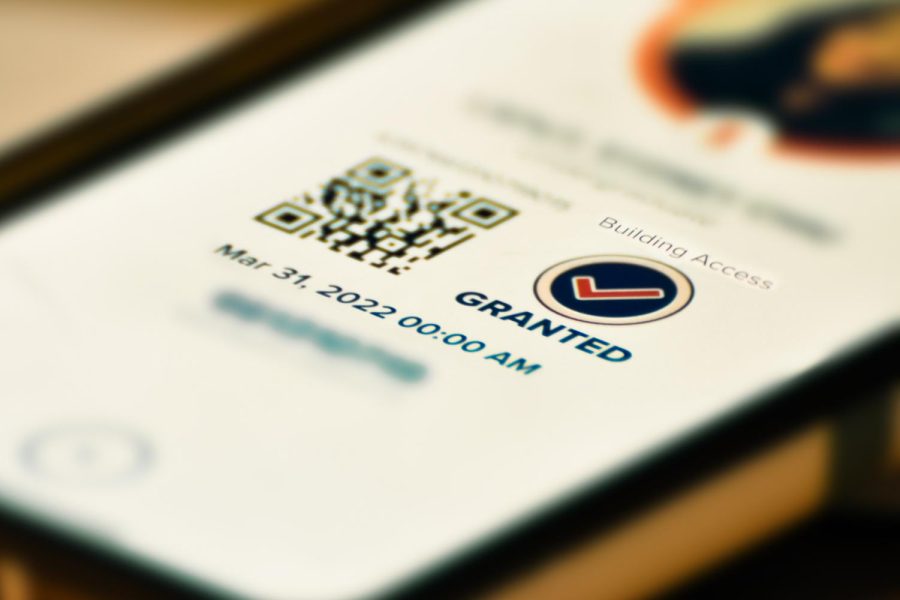Illinois app deadname issue reignites conversation about trans issues on campus
The Illinois app’s recent implementation of using student’s legal names from preferred name has sparked discussions related to transgender students and misgendering.
Mar 31, 2022
Last updated on Oct. 21, 2022 at 03:39 p.m.
On March 21, some students were surprised when the Illinois app’s building access screen switched from displaying their preferred names to displaying their legal names.
This incident reignited discussion regarding the experience of transgender students on campus and the University’s use of deadnames — the names that transgender individuals are given at birth, which they no longer use.
Azer Matten, junior in FAA and president of the Campus Union for Trans Equality and Support, said that seeing this change on the Illinois app was troubling and “pretty weird.”
“I know a lot of other people (where) it was uncomfortable for them because they did have their preferred name listed,” Matten said. “If you went to the process to have a preferred name, and then they don’t use it, then what’s the point?”
Get The Daily Illini in your inbox!
According to Bill Sullivan, director of the Illinois app, the building access screen was using students’ legal names because of a database issue.
“(The) Illinois app pulls the preferred name from a user’s i-card data,” Sullivan said.
Although this is the first occurrence on the Illinois app, deadnaming has occurred various times at the University. For instance, during the 2021 commencement, the University read off the deadnames of graduating transgender students.
Robin Kaler, associate chancellor for Public Affairs at the University, said in an email that preferred names have been used for more than five years.
“Within the past two years we implemented diploma names, which permit a student to use a name other than their legal name on their diplomas,” Kaler said. “It is quite simple and quick to provide a preferred first name using self-service and this can be updated at any time.”
According to Matten, in order for your preferred name to be on your diploma you have to submit a preferred diploma name to be listed on a diploma, as well as following up to make sure the University received the submission.
“It’s not necessarily an easy opt out,” Matten said.
Matten also said that deadnaming often occurs at McKinley Health Center.
“It seems like regardless of what you do, McKinley always seems to have your legal name,” Matten said.
Matten said that when at McKinley or doing COVID-19 tests, when someone says their legal name it’s more “uncomfortable” and “jarring” for them. When mandatory COVID-19 testing was happening through McKinley, you had to introduce yourself with your full legal name.
“If you have not been able to change it yet, it would be your deadname,” said Max Meyer, a graduate student at the University.
Meyer said that hearing their deadname is “draining.”
“I try not to make an issue of it simply because if I do that, every time I hear it, I wouldn’t get anything done,” Meyer said.
Robert Parker, director of McKinley, said that legal names are on all documents.
“This is the biggest reason for why deadnames are not dead — they are allowed to remain the legal name,” Parker said.
According to Parker, the i-card system updates the McKinley Medicat Portal, the patient management system used by McKinley, each day with the preferred name.
“Now, the mistakes are uncommon because Medicat serves most of our interface issues with the student and is updated daily,” Parker said. “Our pharmacists do a terrific job with the manual override but mistakes, though infrequent, do occur.”
In addition to encountering their deadname, Meyer has also experienced issues with misgendering at the University.
When Meyer worked as a teacher’s assistant, they introduced themselves to their class at the beginning of the semester and mentioned their preferred pronouns. However, the professor continued to never use their preferred pronouns, which confused many students, according to them.
“I actually knew that we had at least one trans student in that class who then, at least partially … proceeded to wait until after graduation to come out,” Meyer said. “The University does not make it clear that this is a safe place that trans people and trans students can exist in.”
Moreover, during an event several years ago at their department for recruiting prospective students, Meyer was yelled at by another graduate student in front of everyone about their pronouns and name.
Meyer also noted that the University only updates names for payroll if they have been legally changed, and non-binary individuals were forced to designate a binary gender until only recently.
“We actually had an issue of one of the graduate students who was not getting paid because they refused to misgender themselves,” Meyer said.
Meyer said it eventually got resolved but took a very long time to fix.
“The University does not put serious effort into this until somebody complains,” Meyer said.
After Meyer changed their legal name, they wanted to update their University email, which contained their deadname, but had to go from “person to person” to get it changed.
“I had issues for months afterward with the email system not switching over,” Meyer said.
This resulted in people using their deadname and it remaining in the system, they said.
According to Kaler, the University supports those who choose to be represented by the name that aligns with their identity.
“We are committed as a University to the work needed to continue to improve processes that may help to reduce hostility or harm that our students, faculty and staff may face,” Kaler said.






